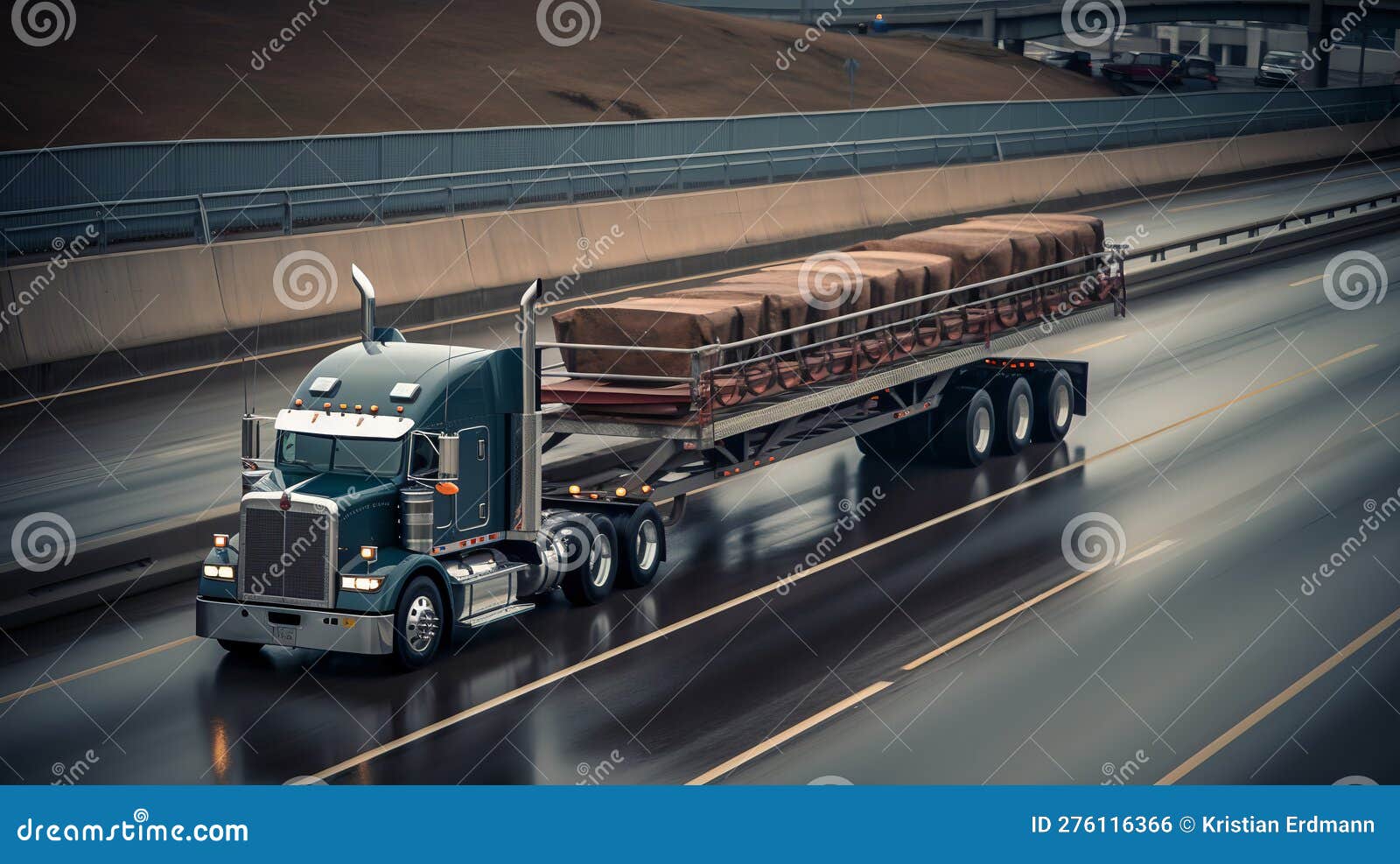Addressing America's Growing Truck Size Problem

Table of Contents
The Rise of Mega-Trucks and Their Impact on Road Safety
The proliferation of mega-trucks, or semi-trucks exceeding standard dimensions, significantly contributes to increased road safety concerns. Their sheer size presents unique challenges, leading to a higher risk of accidents compared to smaller vehicles.
- Increased Blind Spots: The larger size creates extensive blind spots, making it difficult for drivers of mega-trucks and other vehicles to see each other, increasing the likelihood of collisions. This is especially problematic at intersections and during lane changes.
- Difficult Maneuverability: Mega-trucks struggle to navigate tight corners and intersections, potentially causing accidents due to swerving or jackknifing. This is particularly true in urban areas and smaller towns with less spacious roadways.
- Higher Risk of Rollovers: The increased center of gravity in larger trucks makes them more susceptible to rollovers, especially on curves or uneven roads. Rollover accidents often result in severe injuries and fatalities.
- Increased Damage in Collisions: Due to their greater mass and momentum, mega-trucks inflict significantly more damage in collisions. This leads to more severe damage to other vehicles and potentially more severe injuries to occupants.
- Statistics: While precise statistics vary, numerous studies show a correlation between the increasing size of trucks and the severity of accidents. Data from the National Highway Traffic Safety Administration (NHTSA) and other sources highlights the disproportionate impact of large truck accidents on fatalities and injuries. Further research is needed to fully quantify the impact of mega-trucks on road safety.
Infrastructure Strain and the Cost of Maintaining Roads
The increasing weight and size of trucks exert significant pressure on our nation's infrastructure, leading to substantial wear and tear on roads, bridges, and pavements.
- Increased Wear and Tear: The heavier loads carried by mega-trucks accelerate the deterioration of road surfaces, bridges, and pavements. This leads to potholes, cracks, and structural damage, requiring more frequent and extensive repairs.
- Higher Maintenance Costs: The increased need for repairs translates directly into higher costs for road maintenance and repairs for taxpayers. These costs often strain local, state, and federal budgets.
- Need for Infrastructure Upgrades: To accommodate the growing size and weight of trucks, significant investment in stronger and more expensive infrastructure upgrades is needed. This includes rebuilding bridges, reinforcing pavements, and widening roads.
- Impact on Smaller Towns: Smaller towns and rural areas with limited infrastructure are particularly vulnerable to the damage caused by oversized trucks. The cost of repairing damaged roads and bridges can be especially burdensome for these communities.
- Examples of Damage: Numerous examples exist across the country of bridges and roads that have been damaged or even collapsed due to the weight of oversized trucks. These incidents underscore the urgent need for addressing this issue.
Environmental Concerns Associated with Larger Trucks
Larger trucks, while essential for transporting goods, contribute significantly to environmental problems.
- Increased Fuel Consumption: Mega-trucks generally consume more fuel per mile compared to smaller vehicles, leading to higher carbon emissions.
- Greater Air Pollution: The increased fuel consumption contributes to poorer air quality, particularly in urban areas with high traffic density. This poses risks to public health.
- Greenhouse Gas Emissions: Higher fuel consumption directly translates to increased greenhouse gas emissions, exacerbating climate change.
- Potential Solutions: Improving fuel efficiency through technological advancements, such as hybrid or electric truck technology, is crucial. Investing in alternative fuels and promoting more efficient logistics can also help mitigate these impacts.
- Emissions Comparison: Studies comparing emissions from different truck sizes clearly show the disproportionately higher environmental impact of mega-trucks.
Potential Solutions and Policy Recommendations
Addressing the challenges posed by oversized trucks requires a multifaceted approach.
- Stricter Regulations: Implementing stricter weight and size regulations for trucks is paramount. This may involve limiting the maximum weight and dimensions allowed on certain roads.
- Infrastructure Investment: Investing in robust infrastructure capable of handling larger trucks is essential. This includes building stronger bridges, reinforcing pavements, and widening roads in strategic locations.
- Incentives for Fuel Efficiency: Offering incentives for using more fuel-efficient trucks and alternative fuels can encourage the adoption of greener technologies.
- Enhanced Driver Training: Comprehensive driver training programs focused on safe operation of large vehicles are crucial to mitigate accident risks. This should include specific training for navigating challenging road conditions.
- Technological Solutions: Implementing advanced driver-assistance systems (ADAS) in trucks, such as lane departure warnings and automatic emergency braking, can enhance safety.
Conclusion
The increasing size of trucks on American roads presents a significant challenge impacting safety, infrastructure, and the environment. Addressing this "truck size problem" demands a multi-pronged approach: stricter regulations, infrastructure improvements, technological advancements, and comprehensive driver training. By taking proactive steps to mitigate the negative consequences of oversized trucks, we can create safer, more efficient, and environmentally sustainable transportation systems. We urge policymakers and stakeholders to prioritize finding effective solutions to this growing problem and work towards a future with balanced transportation needs—one where the benefits of efficient freight transport are not outweighed by the detrimental effects of oversized trucks on our communities and the environment.

Featured Posts
-
 Latest Us Iran Nuclear Talks Conclude Without Breakthrough
Apr 28, 2025
Latest Us Iran Nuclear Talks Conclude Without Breakthrough
Apr 28, 2025 -
 Broadcoms V Mware Acquisition At And T Highlights Extreme Cost Increase
Apr 28, 2025
Broadcoms V Mware Acquisition At And T Highlights Extreme Cost Increase
Apr 28, 2025 -
 Americas Truck Bloat Finding A Solution
Apr 28, 2025
Americas Truck Bloat Finding A Solution
Apr 28, 2025 -
 Chat Gpt Developer Open Ai Under Ftc Investigation Key Questions Answered
Apr 28, 2025
Chat Gpt Developer Open Ai Under Ftc Investigation Key Questions Answered
Apr 28, 2025 -
 Worlds Most Influential Chefs Fishermans Stew Recipe Eva Longorias Reaction
Apr 28, 2025
Worlds Most Influential Chefs Fishermans Stew Recipe Eva Longorias Reaction
Apr 28, 2025
Latest Posts
-
 75
Apr 28, 2025
75
Apr 28, 2025 -
 Tecno Universal Tone
Apr 28, 2025
Tecno Universal Tone
Apr 28, 2025 -
 Coras Subtle Red Sox Lineup Changes For Doubleheader
Apr 28, 2025
Coras Subtle Red Sox Lineup Changes For Doubleheader
Apr 28, 2025 -
 Could Espns Red Sox Outfield Prediction For 2025 Come True
Apr 28, 2025
Could Espns Red Sox Outfield Prediction For 2025 Come True
Apr 28, 2025 -
 Slight Lineup Shift For Red Sox Doubleheader Game 1
Apr 28, 2025
Slight Lineup Shift For Red Sox Doubleheader Game 1
Apr 28, 2025
